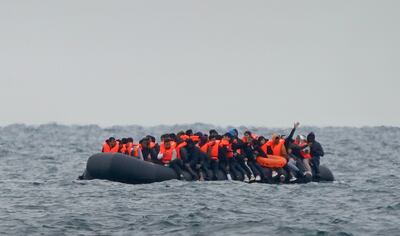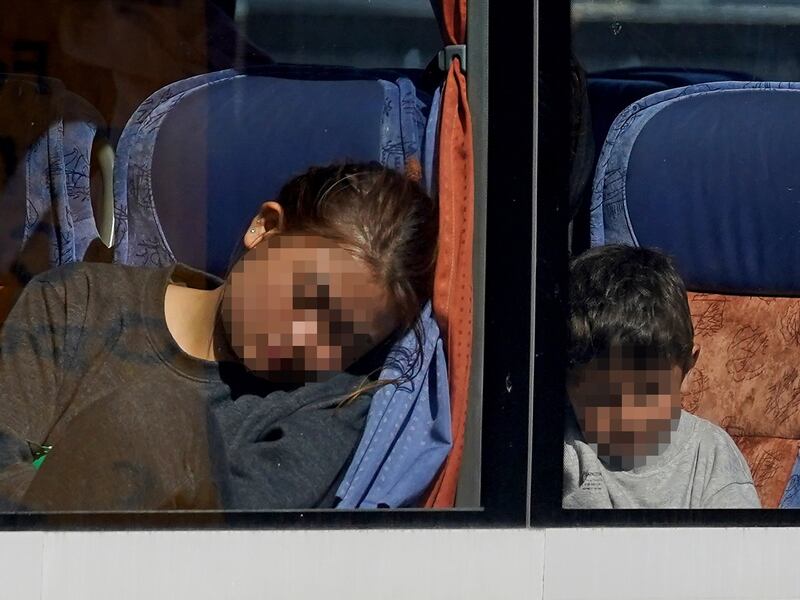Lone refugee children as young as 13 are staying in hotels despite the practice previously being ruled unlawful, a court has been told.
Lawyers for a children’s charity suing Kent County Council, which has placed the children in hotels, said up to three quarters of asylum-seeking children living in them are now under 16, with the proportion growing.
The case is being brought against the council and the UK government by Every Child Protected Against Trafficking. At a previous hearing, a High Court judge ruled that the routine use of hotels to house lone migrant children, nearly all of whom arrived on small boats, was unlawful.
The authorities in the UK face heavy criticism for failing to protect child asylum seekers, many of whom have disappeared, including a child of 12.
In the previous hearing, in August, Judge Sir Martin Chamberlain ordered Kent and the Home Office to work together to find appropriate accommodation for lone refugees.
Kent County Council is itself bringing a case against the Home Secretary over the burden it faces in having to deal with migrant children, as the area in the UK where all small boats arrive. Brighton's council is bringing a similar action.
ECPAT's barrister, Martin Westgate KC, told the High Court that “unaccompanied asylum seeker children have continued to be accommodated in hotels in numbers that have barely changed since the last hearing”.
He said that figures show 185 refugee children have not been placed in accommodation, of whom 138 – or 75 per cent – were under 16 and eight were 13-year-olds.
“It is a cause for particular concern that a significant majority of them are under 16 and this appears to be a deterioration from the previous position,” he said. “There is no clear explanation as to why this is.”
The court was told that as of Monday, Kent now has 777 lone asylum seeker children in its care – up from 605 in mid-August – and in its accommodation centres they are now living three or four to a room.

Kent’s barrister, Hugh Southey KC, said the council was taking “all possible steps to ensure that it is able to accommodate and support all unaccompanied asylum-seeking children” and regrets that it has not been able to “rectify this situation”.
But he said these are systemic problems, which can be solved only with the support and assistance of the Home Office.
Stephanie Harrison KC, for Brighton and Hove City Council, said in written arguments: “The continued unlawful use of hotels which is, in respect of under-16s, also a criminal offence, must be promptly brought to an end. No further children should be placed in hotels.”
Earlier this year, The National was told that people-trafficking gangs have been using mobile phone trackers to find refugee children staying in UK hotels and then lure them away.
Due to the increase in small boat crossings, the government says it has “no alternative” but to urgently use hotels to house unaccompanied asylum-seeking children.
Deok Joo Rhee KC said in written arguments for the Home Office that it was “reasonably confident” that a new funding arrangement with Kent County Council could be put in place by the end of October and that it had “not underestimated” the challenges the local authority faced.
She said “an immediate cash injection” of £9.75 million would help the council increase capacity, with the government committed to bringing about “improvements to the speed of transfers” of children between areas which were a “necessary and important part of the solution”.
The lawyer said the government was “alive to the need to ensure that the significant progress that has been made to date is not lost and that intensive efforts are maintained”.
The leader of the opposition Labour Party, Keir Starmer, this week said people-smuggling should be treated “on a par” with terrorism.
He was in the The Hague outlining how a future Labour government would tackle human-trafficking gangs.
The Labour leader met officials at Europol, which Britain left after Brexit, in the hope of deepening ties with the EU to destroy organised immigration crime.
“The first job of any government is national security – protecting the British people from threats that come from here and overseas,” Mr Starmer said.






